What is a sensitive period in Montessori?
Dr. Montessori took great interest in the sensitive periods of a child's mental development. What this refers to is a special time in a child's development wherein a child takes great interest in acquiring a certain skill or trait.
As soon as this skill or trait is acquired, according to Dr. Montessori, this sensitive period ends. This requires the adult to furnish activities that allow a child to develop these skills.
Times of these phases need to be taken advantage of. For when the period ends, a child moves onto the next phase in their mental development.
Parents have no control over when these periods are going to occur, but it is our job to allow our children to act on these impulses. These are natural impulses of mastery and we, as parents, are simply to act as facilitators and observers.
The end of sensitive periods will be obvious to us. A child will become disinterested and grow tired of performing the particular task of the phase.
A child's mental growth passes from triumph to triumph, and we can recognize this through their increased reasoning and efforts.
Recognizing these sensitive periods is vital because, not only must we observe and facilitate, but we should be careful not to get in the way. Dr. Montessori believed this would “warp” the child's being and affect them through their adulthood.
***Ages are approximations. Children may enter these sensitive periods before or after these ages and the sensitive periods can be slightly shorter or longer than stated.***
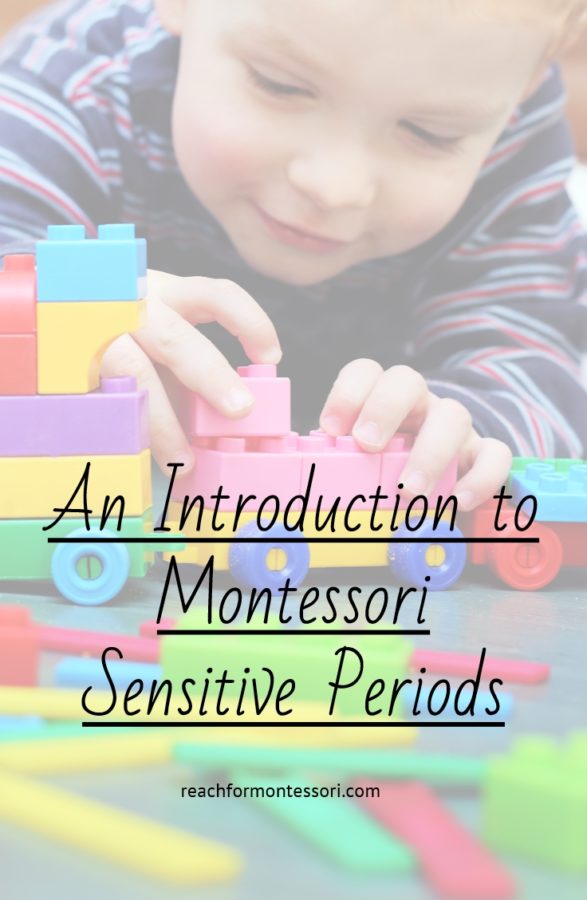
Montessori sensitive periods
Weaning (6 months)
Around this age, babies start to notice the people around them eating delicious and interesting foods. Parents see their babies smacking their lips at food and showing other signs of readiness.
Parents can take advantage of this sensitive period by providing their babies the opportunity to touch and taste foods with a variety of textures and flavors.
Please note that the word “weaning” does not mean stopping breastmilk or formula. It means that foods are introduced as a complement to the baby's diet; a step toward what western culture has termed “weaning”.
Movement (0-12 months)
Seemingly random movements become coordinated as they learn how to coordinate many small and large muscle movements. During the first year of life, babies progress from involuntary flailing of their limbs all the way to proficiently crawling, then onto the amazing feat of walking upright.
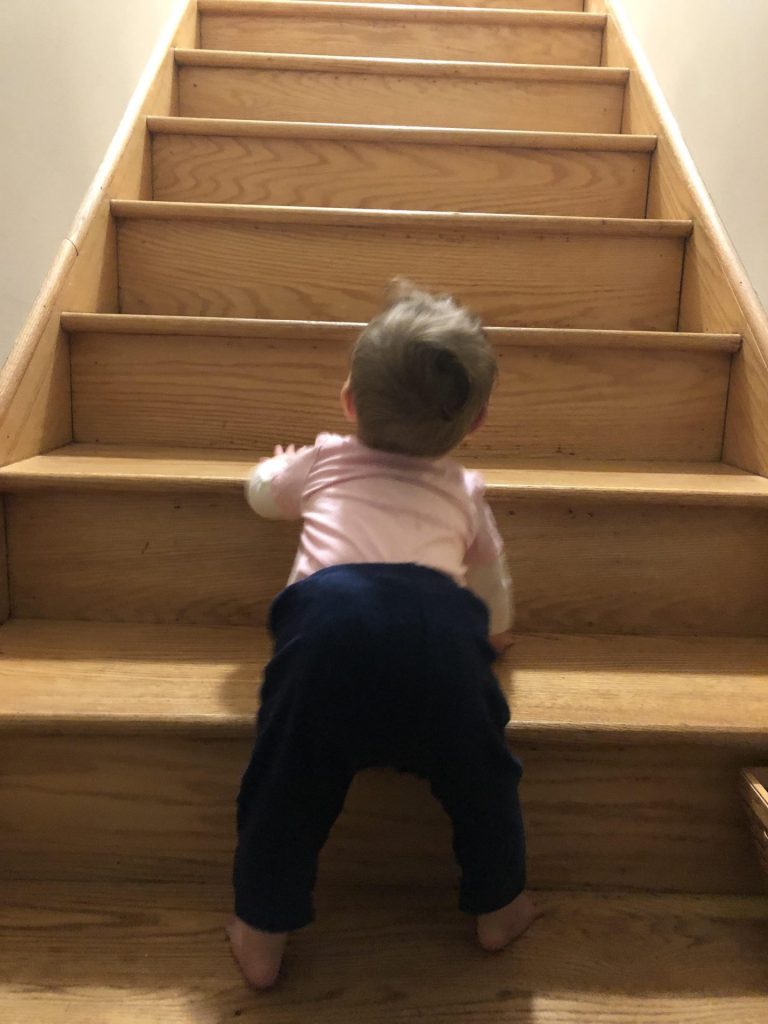
While children develop new gross motor skills well beyond the first year of life, no greater progress occurs so rapidly than during this time frame. This is why it is so critical to allow babies freedom of movement and to provide opportunities to help them meet their gross motor goals.
Language (0-6 years)
Starting with random sounds, cooing, and babbling, and ending with complete sentences. This is an especially trying time for parents.
When children go through this period, tantrums occur…I know…this can happen for up to six years! These outbursts happen when a child is unable to make their needs known, defend themselves, or aren't given the chance (or able) to ask questions.
This can be a frustrating time for everyone, child and parents alike! Parents can help their children along during these years by providing a language-rich environment.
Helping children identify the names of objects, reading books with them, and having conversations with them are all great ways to help kids get to develop their language skills.
Television in the early years has been shown to delay this progress. So, limiting screen-time and letting them hear more spoken words in real life is key.
Most important is listening to your child when they are talking. Kids want to be heard, just like anyone. Listening can make any child to want to speak more.
Order (6 months-4 years)
Children, at this age, enjoy routines, repetition, and consistency. They appreciate familiar routines and caregivers.
Also, while children can be messy and unruly at times, this does not mean they don't crave order in their learning and play environments. You may have noticed your child is upset when a play item is not placed where it is usually kept.
The best thing you can do to aid your child in through phase of their development is to provide solid routines, consistent caregivers, and an orderly environment. (Not “neatness” by our standards, but simply an environment that makes sense to them.)
This is also a great way to side-step meltdowns! As I'm sure you know, a disruption in a child's normal routine can send them spiraling out of control. These “tantrums” are easily prevented by giving your child the predictability they need.
Small objects (1-4 years)
Kids at this age really enjoy miniatures while playing more so than at any other point.
Their interest in small objects lends itself to language and fine motor development. Taking advantage of this sensitive period is easy and fun! Find out more about loose parts play here.
Potty Learning (18 months-3 years)
The nervous system is becoming developed enough for a child to be able to control their bladder and bowels. This is the window in childhood when potty learning is typically mastered.
There are different methods parents use to help their children become proficient potty-goers. The most important thing to remember while your child is learning to use the potty is to remain gentle and calm through the learning process.
The “Oh, Crap! Potty Training Book ” is a very popular one that is recommended in pretty much every parenting circle. There are more Montessori-aligned book suggestions in my potty training 101 article.
Music (2-6 years)
Rhythm and melody become of interest of children at this age. This is a great time for games that involve these components!
You may notice at this age that your child has taken a keen interest in playing, or trying to play, an instrument.
Don't shrug off this interest! Instead, give your child ample opportunities to explore it via group or individual music classes.
Also, if you play and instrument, play it in front of and for your child! This a great way to integrate your personal pre-parenting passion into daily parenting.
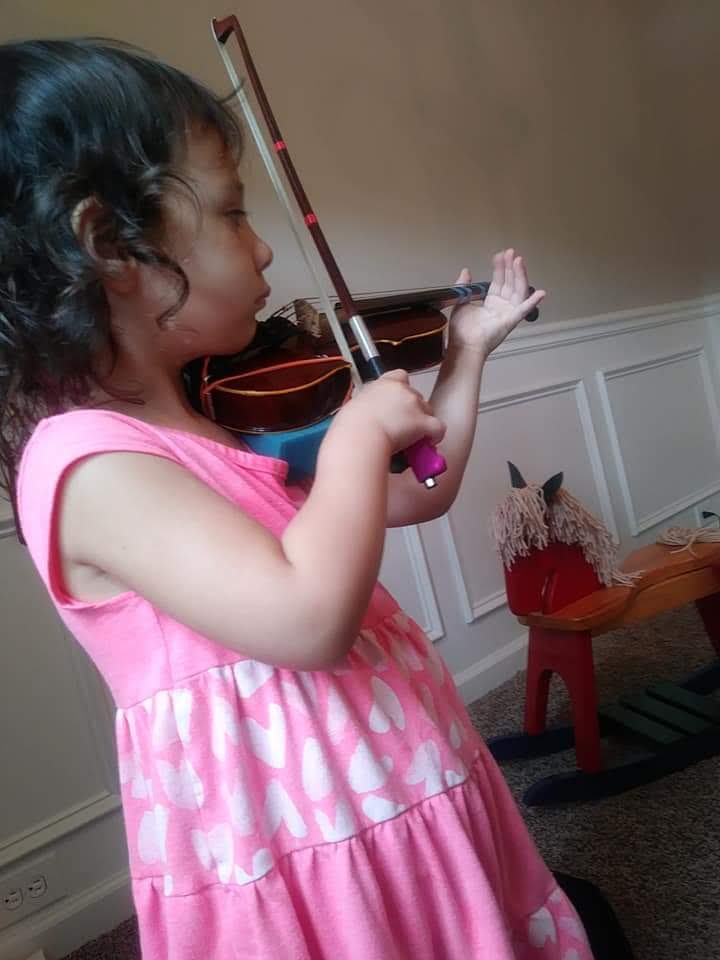
Grace and courtesy (2-6 years)
This is the age wherein children really enjoy imitating the behavior of the adults around them. Kids absorb everything going on around them!
Role playing grace and courtesy activities and modeling politeness are the best ways to help your child develop these social skills.
Senses (2-6 years)
Sensorial experience is critical at this age. Children absorb information through sensorial experiences.
Your child is in the age of the absorbent mind. To help your child during this sensitive period, what you don't do is equally as important, if not more important, than what you do.
It's important to make sure to provide learning opportunities through the senses. It's also important not to over-teach during this sensitive period.
Remember, children are absorbing everything around them at this age. It's a time to back away from their exploration and let them grow and gain knowledge themselves, through their senses.
This is the time in Montessori classrooms where sensorial materials are introduced.
Writing (3-4 years)
Dr. Montessori saw that children have the inclination to write, prior to the inclination to read. You can observe this in your own children.
The aptitude to color and draw picture generally comes before the interest in reading. You can help your child along by providing ample opportunities to refine their pincer grasp.
Reading (3-5 years)
An interest in symbols leads children to wonder how symbols for letters can represent sounds.
Parents can help their children at this time by playing sound games and by introducing materials, such as the Small Moveable Alphabet.
Spatial recognition (3-6 years)
Spatial recognition is the ability to understand how objects interact with each other and the space around them.
If your eyes haven't already glazed over after reading that sentence, let me give you an easy example: A child can look at the Long Red Rods and order them from longest to shortest. This child has developed the spatial recognition it takes to complete this task.
Along with providing Montessori materials, such as the Pink Tower and the Long Red Rods, ect., parents can help their child's spatial recognition develop by giving them opportunities to build, climb, and put puzzles together.
Math (4-6 years)
Around this age, children become interested in quantities, counting, and math problems.
Materials that provide concrete representations of written numbers are vital at this age, as children are still in the sensitive period for refinement of their senses. (The Montessori Golden Bead Material is a great example of this!) Parents can aide in their child's development of math skills by providing these materials and helping their child associate these concrete representations with their written symbols.
So, now that you are able to recognize the sensitive periods of your child's development, how will you make sure to facilitate their development?
I'm always interested in feedback!
Cheers and don't forget to subscribe!
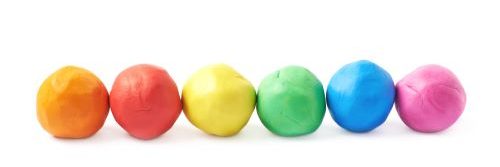
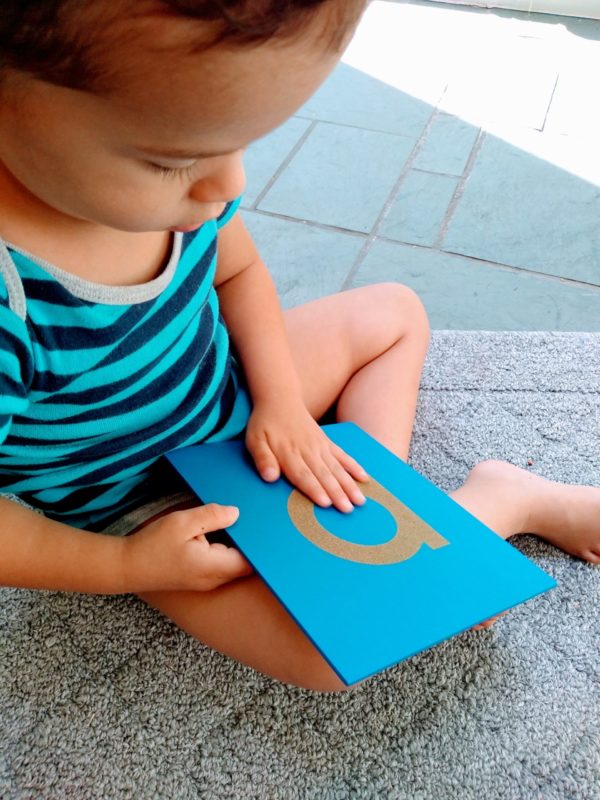
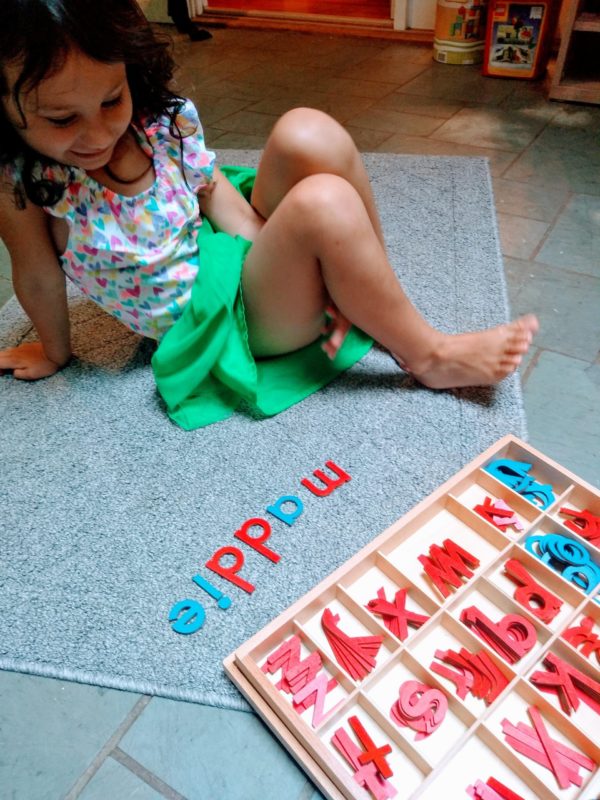

Wow this was so interesting to read!! It’s funny how sometimes the best thing for our kids, are the things that come most naturally. Just let them do what they do! It’s becoming so ingrained in our culture now to push kids to do better, do more, or in some cases hinder them by trying to protect them. But trusting them to test different skills out as their development allows is really the best! I love how you laid out all the different sensitive periods.
Loved this! These were great as I have two small girls ages 3 and 1. Thank you!
I love watching my kids go through each of these phases! (Well, maybe not the potty training part, getting ready to start that with my third– that book helped TREMENDOUSLY with my second)
These are awesome to remember. My son is two, so I’m seeing a lot of these start to emerge!
Love this post! I have two boys 6 and 4 and it’s amazing how much and how different each one of them learn. Thank you for sharing.
My little one currently is coming up on 4 months. This really helps to know what to prepare myself for. We are heading into our weaning period and it makes me anxious.